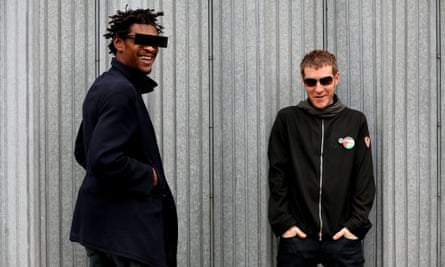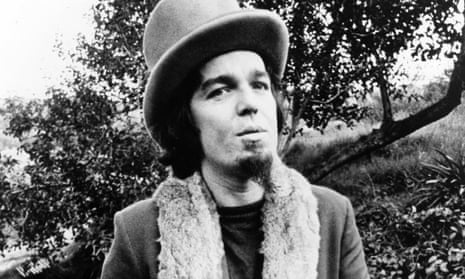As an undergraduate at the University of Bristol in the early 1990s, Richard King spent almost as much time in the city’s record shops as he did in the library. One shop in particular – Revolver, founded in the early 1970s, lacking a window display and accessible only via a small flight of stairs, offered him an alternative education in the wilder shores of jazz, reggae, post-punk and country music. He even worked there for three years after leaving college. Original Rockers, its name taken from an Augustus Pablo LP, is a remarkable memory fugue, a work of rapture and reverie, a bittersweet and often moving tribute to a hallowed place.
Revolver didn’t stock only independent records, but it liked to honour independent-minded artists such as Captain Beefheart, Townes Van Zandt and the English improv trio AMM, one of whose albums King describes as operating “beyond tonality, noise or improvisation... the sound of ideas having a black mass or, occasionally perhaps, an orgy”.
The shop was almost perversely independent itself: it didn’t accept credit cards and declined to be part of the chart-return system, so that any sales were ineligible for the top 100. Yet it made cheap cassette copies of out-of-print records for its customers, played a key role in the development of what came to be known as trip hop and, in one of this book’s many entertaining stories, was raided by the police who suspected it of being a front for making and selling LSD.

Nearly two decades after he stopped working there, King has an extraordinary ability to conjure up the touch and texture of its rare ecology. The dusty shelves, the smell of unwashed customers, the clumps of invoices and late-payment reminders, even the muscle memory of “the particular angle at which one crooked one’s head to read the spine of an album”: these are recalled with diviner-like detail. So are the racks created for made-up genres such as “town crier psych” and how the sleeves of imported reggae records were made from recycled cereal packets and Air Jamaica publications.
King writes like a dream, describing how the liberal use of echo, reverb and drop-outs in dub “signified a rejection of material conditions and reimagined reality as a haunted sphere”, and gorgeously evoking the interplay of city and sonics in his account of listening to local band Massive Attack on his headphones while walking home from the shop one evening. Revolver itself becomes a dream, a mysterious wardrobe, its counter “not merely a location for purchases but a point of departure for the sharing of an obsessional love of music and a wonder at its ability to transfigure the everyday”.
For those intimidated by the atmosphere of old record shops, Original Rockers offers plenty of ammunition. His boss tells one customer that he’s more likely to find the record he’s after in a skip than in his shop. Another customer comes in to buy a record by acid jazz outfit the James Taylor Quartet only to be told: “I can’t sell you that. All that record is is a complete rip off of The Cat by Jimmy Smith.”
Revolver, like many independent record shops, closed at the start of the last decade. King recounts how, in the eyes-on-the-prize Britpop era, the notion of independence as a social and political value waned. The online retailers that followed offer convenience and clickability, but often lack soul; the biggest – Amazon – is a major tax dodger. Lately, though, sales of vinyl and cassettes have been rising. Small labour-of-love shops are sprouting up again. For their owners – and for us – Original Rockers doesn’t only lament what has been, but is a generous and deeply humane account of what could be.
Original Rockers is published by Faber, £18.99. To buy for £15.19, click here

Comments (…)
Sign in or create your Guardian account to join the discussion